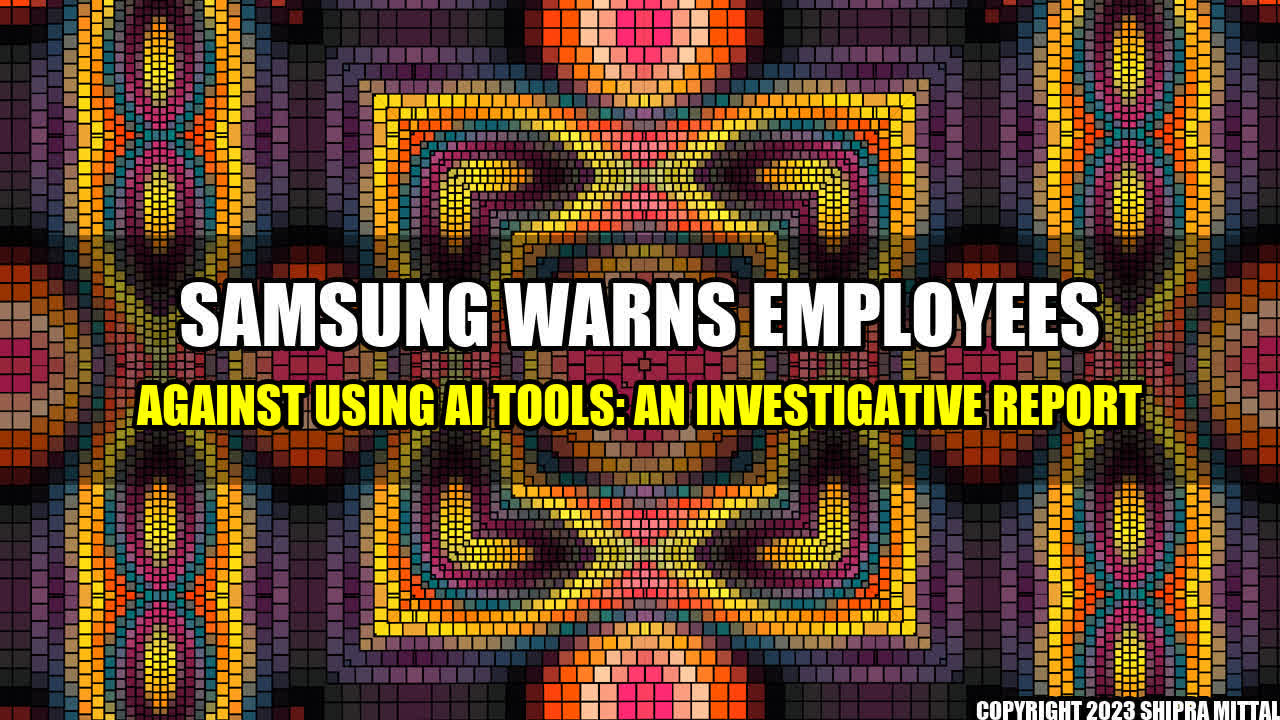The Incident
It was a typical day at Samsung when one employee tried to introduce ChatGPT, an AI-based chatbot tool, to the team responsible for customer service. The idea was to streamline the process of responding to customer queries by automating some of the less technical and time-consuming tasks. However, to the shock of the employee, management instantly banned the use of ChatGPT. This sparked curiosity and concern among the Samsung workforce.
The Research
Further investigation revealed that Samsung was not alone in its decision to ban AI tools. In fact, a few other major companies have also prohibited the use of such technology by their employees.
Real-Life Examples
Amazon, for instance, suspended the use of its AI recruitment tool after it was found to be biased against women candidates. JP Morgan Chase has also set strict guidelines on the use of AI tools after experiencing similar concerns regarding the risk of bias and potential ethical implications.
The Reasons
The main argument by companies against using AI tools is that they cannot guarantee the accuracy of the outputs generated by such programs. Companies are concerned that using AI may introduce unforeseen errors that could damage their reputation, hurt customer satisfaction, or even result in legal and financial implications.
The Conclusion
While this decision may seem surprising, it is not entirely unjustifiable. There is a real need for caution when it comes to integrating AI tools into the workforce. Companies must carefully consider the impact of new technologies on their employees, their reputation and the ethical considerations they raise.

Akash Mittal Tech Article
Share on Twitter Share on LinkedIn